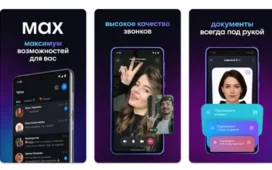Mark Zuckerberg’s future vision for Facebook may not be what you’d expect, and really, not even “social” in any way, based on his latest insights.
In an interview this week at South Park Commons, Zuckerberg provided insight into Meta’s longer term plans, his vision for the metaverse, the development of AR glasses and more.
And in amongst the various notes, Zuckerberg made one comment that stood out.
In relation to the evolution of Facebook, and social media more broadly, Zuckerberg said:
“Every part of what we do is going to get changed in some way [by AI]. [For example] feeds are going to go from – you know, it was already friend content, and now it’s largely creators. In the future, a lot of it is going to be AI generated.”
So Zuckerberg’s saying that social media feeds have already undergone their first major evolution, in shifting from social content, being posts from friends and family, to primarily entertainment-based posts, largely video, based on algorithmically matched uploads aligned with your interests to keep you scrolling.
But in the future, Zuck believes that the next major shift is that we’ll go from video content to a lot more posts generated by artificial intelligence.
Is that a good thing?
I mean, Facebook is already awash with rubbish AI content, posted by spammers and scammers fishing for likes.

Is that what we really want, more robotically engineered images that simulate actual human content, but don’t represent anything real, in any way?
Of course, we’re still at the beginning of the generative AI shift, and all of these tools will improve, while we’re just now getting into video content generation, which will be another element.
But social platforms were designed to facilitate human connection, right? And if we’re no longer connecting with the world and people around us, are they still going to hold the same appeal?
An argument could be made, as Zuck has done, that we’re already past this anyway, and eventually, enabling more people to use AI to produce creative, engaging content, even without any cinematic or animation skills, will be a big benefit.
But my argument remains that creating engaging content is not just about having the right tools, it also requires the creator to be able to tell a story, a compelling, human story, that’ll connect with an audience. That’s not easy, which is why most YouTubers fail, why most writers are never able to gain significant traction and why most wannabe authors remain just that.
It takes time, effort, and commitment to learn the skills required for storytelling, which is the basis of any creative effort. And while AI tools will enable more people to create more types of content, that doesn’t mean that it’s going to be any good.
And if Facebook is setting itself up to host more and more AI content, I can’t see how that’s going to be a benefit for the platform overall.
But AI remains the trend of the moment. It’s worth also noting that Zuck also discussed more valuable uses of AI, in a VR context:
“[With] the metaverse stuff, you go from all these developers building out these worlds, to it just being more generated, almost like a lucid dream as you’re walking through it. It’s going to be wild.”
This, in my opinion, is a more practical, novel use of generative AI that could give Meta a significant market advantage. Because eventually, VR is going to catch on, and more and more people are going to be engaging in more immersive environments. Historical trends point to this, and as the technology continues to improve, you can see how VR will eventually become the next big focus.
And if Meta can facilitate full VR creation, by enabling users to speak their experience into existence around them, that would be a significant advance, and a next-level experience that no other company, at this stage at least, would be able to compete with.
That’s when Meta’s billions of dollars of investment into VR will make more sense. But the in-between stage for Meta’s AI ambitions, where it’s giving its audience more chatbots and more image generation tools, seems less solid, less assured. And really, a significant step away from its social media roots.
Will that be too much of a leap? I mean, Facebook still has 2 billion daily active users, and Zuck recently remarked that its AI chatbot is closing in on becoming the most used AI assistant in the world. So its current AI push isn’t seemingly having any negative impacts. But still, I also don’t see these being transformative tools, while AI-generated junk is also cluttering up more and more people’s feeds.
Do we really want a Facebook where all the posts are AI images and all the replies are AI-generated? Is that engaging or interesting for users?
Its direction and leaning is also concerning when Meta itself publishes images like this:
Like, we just saw this actual image captured at the Olympics, and it was an amazing, real moment, captured by a real photographer, depicting a real, human athlete.
Is taking the humanity out of such a good thing? And again, is that what Facebook users really want?








Recent Comments